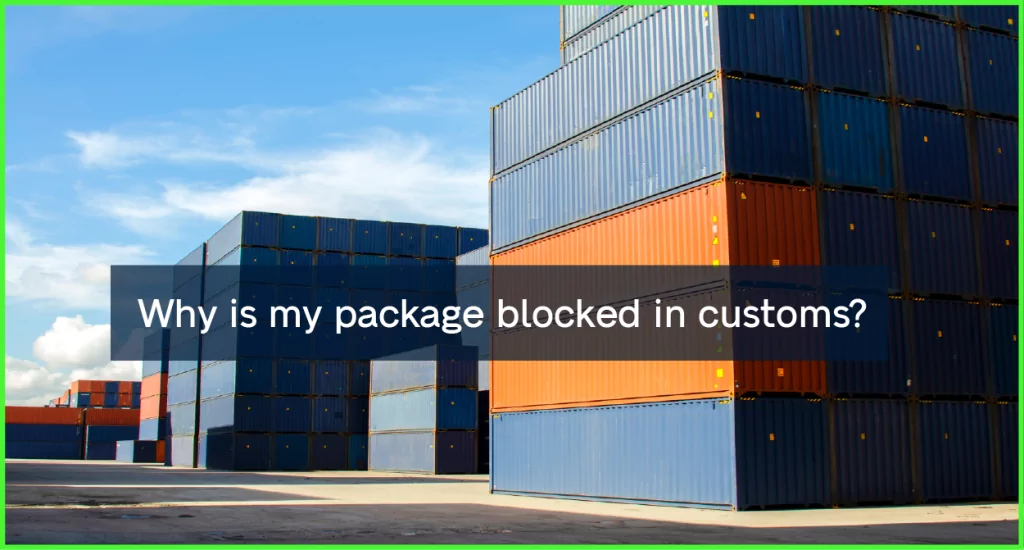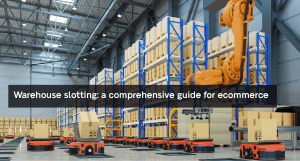The disappointment of finding out your package has been held up by customs.. In one word? Agonizing. This kind of situation is equally frustrating for both the sender and the recipient, and it significantly complicates international shipping processes. Let’s find out about the most common reasons behind customs delays, how to retrieve items, and, most importantly, how to avoid these situations for future shipments.
Most frequent causes of package delays at customs
Incomplete or incorrect documentation
One of the most common reasons for customs holds is incomplete or incorrect documentation. International shipping is far from easy, as packages generally need to be accompanied by detailed paperwork, including a meticulous description of the content, its weight, volume, and value. The documentation can vary based on the shipment’s destination. For example, shipments entering the U.S. typically require a certificate of origin, a packing list, and a commercial invoice. For goods entering the E.U., you will need an EORI CODE, and so on.
The absence of these forms or missing details, like minor errors in the recipient’s address can lead to significant customs delays.
Unpaid duties and taxes
Many countries require shippers to pay import duties and taxes on goods exceeding a certain value. Sometimes opting for Delivery Duty Paid (DDP), which includes the prepayment of these charges or using a bonded warehouse to store goods until customs are cleared and taxes or duties paid can avoid these setbacks.
Restricted items
Shipping prohibited, hazardous, or dangerous items like alcohol, fireworks, or tobacco can be challenging and complicated. Such items must be sent in compliance with relevant laws and regulations. Many countries have specific rules regarding the import and export of these products and failing to comply with any of these can likely result in fees, delays, and seizure of goods.
Responsibilities and duties for senders
Here’s a brief overview of what senders and receivers should be aware of in terms of duties and responsibilities.
- Senders must make sure that packages are packed in compliance with international regulations, creating accurate shipping labels, and including all required information like tracking codes, names, addresses, item weight, and shipping dates.
- Senders should include a commercial invoice with all necessary details, such as their contact information and the accurate value of the items being shipped.
- Senders should include a packing list detailing item quantity.
- Senders should include a customs declaration form listing items and their values.
- Senders must include the correct HS codes and addresses to avoid misclassification of goods or other delivery issues.
- Senders are also responsible for paying all applicable taxes beforehand.
Responsibilities and fees for receivers
- Receivers must make sure to provide correct names and addresses.
- Receivers must cover any import duties and shipping fees.
- In some cases, receivers must provide other documents like purchase orders, licenses, or insurance certificates.
The customs inspection process
- The customs inspection process begins with an examination of shipment documentation to verify it is accurate and complete. If necessary, customs officers will also inspect physical goods to make sure they correspond to declared items.
- After, import duties and taxes are determined based on shipment content and customs documents provided.
- The assessment of fees is guided by the import regulations of the destination country. Ecommerce businesses can leverage laws like Section 321 to facilitate customs clearance of low-value items, thus avoiding paying duties and taxes. Generally, import duties are applied to goods surpassing a certain value threshold.
This is why shipping with Deliver Duty Unpaid (DDU) and Deliver Duty Paid (DDP) becomes a critical choice. If you choose Delivery Duty Paid (DDP) the customs clearance process is likely to be smoother, as import duties and taxes have already been paid for. In fact, the price you pay for shipping already covers any import fees. Most express couriers services have customs brokers who will take care of this payment on your behalf at customs.
Delivery Duty Unpaid (DDU), on the contrary, means that import duties and taxes still have to be paid for. In this case, the customs officer forwards the shipment to an independent customs broker to collect the required amount who contacts the recipient to ask for payment. These fees can be expensive because they include brokerage, storage, and late payment.
How long will it take to release my package at customs?
There is no universal answer to this question but it depends on each specific case. It can take from just a few days to months. Time depends on whether you have paid taxes, duties, and if you have given all correct documentation.
What do I do if my shipment is stuck in customs?
If your shipment is stuck in customs, contact your provider and check if there are any unpaid taxes or incomplete documents. If you have paid your taxes, it will be the shipper’s responsibility to resolve other customs issues.
How eLogy can help
When selling internationally, businesses must adhere to diverse laws and regulations regarding imports and exports. Any errors in this sense can have serious repercussions on customer satisfaction and business reputation. Elogy supports ecommerce international expansion by offering tech-driven logistics services, strategically located warehouses and partnerships with international carriers, allowing businesses to offer rapid worldwide delivery.
Partnering with a shipping and logistics provider with expertise in international operations can provide efficient solutions for your international expansion, offering invaluable assistance in adhering to complex international laws and regulations, as well as meeting client demand effectively. This allows you to offer customers reliable, quick, traceable shipping solutions at advantageous prices!





